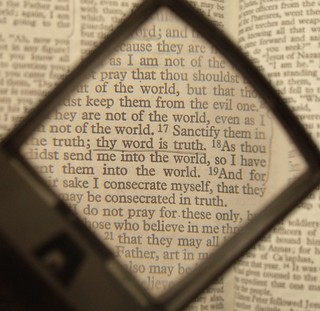All of us have out own reader style. How we choose books. How we consume books. What makes us stop reading (or if we allow ourselves to give up on a book at all). All these things form our unique reader personalities. And I always find it fun to hear how other people go about their reading. (Yes, that's probably a nerdy thing to find fascinating but I am comfortable with my nerdy status. :) )
So I thought I would tackle a few different reader styles/quirks in some posts to hear about your reading style and to share mine.
First up: First lines
As a writer, I angst about first lines of books. I often can't start a book without knowing it. Some writers can put a placeholder line there and plan to change it later, but I need mine to set the tone in my head right from the start. I just went through this last week because I'm starting a new book and I couldn't land on a first line. Finally, one came to me when I woke up out of a dead sleep before my alarm one morning. It's like my brain had been working on it overnight, which is always a strange feeling. But I immediately knew that was the one.
But I think one reason why I obsess over my own first lines is because as a reader, I pay attention to first lines when I'm deciding if I want to read a book. I have other things that play into the decision of course--back cover copy, cover art, if it's been recommend to me, if I've read the author before etc. But I also see a fantastic first line as a harbinger that the writer is going to deliver a good story. The opposite doesn't necessarily hold true. A book can still be good without a fantastic first line, and I've written books where the first line isn't outstanding because I saw the opening scene a certain way in my head and a standout first line would've been wedged in instead of natural for that scene. But I've found that a great first line is often an added thing that gets me excited to read a book and can help tip me over in the to buy or not to buy decision if I'm wavering.
Here are some examples of books on my shelves:
One True Loves by Taylor Jenkins Reid
I am finishing up dinner with my family and my fiancé when my husband calls.
We already know from the back cover that her husband went missing in an accident years ago and was presumed dead, so this line vaults us right into the hook of the story.
11/22/63 by Stephen King
I have never been what you'd call a crying man.
It's enough to intrigue you to keep reading. Why not? And is he saying that because it's about to change?
American Girls by Alison Umminger
My first Manson girl was Leslie Van Houten, the homecoming princess with the movie-star smile.
Dead Until Dark by Charlaine Harris
I'd been waiting for the vampire for years when he walked into the bar.
Because I write erotic fiction, I tend to go with first lines that let you know you're going to get a sexy story. Here are a few of my first lines:
I know how to recognize dangerous men.
"You know, picturing someone naked this early in the morning isn't good for your health."
"Are you touching yourself?" The voice in Oakley's ear sounded labored and overeager--like a St. Bernard attempting phone sex. He was probably drooling too. Lovely.
Okay, so that a little more than first line, but this one tells you the box is going to be sexy and funny.
By the Hour (coming soon)
Maybe she was a masochist after all. God knows what else could’ve compelled her to attend someone else’s party on her birthday.
So hopefully with this line you already know a) the heroine is not in a happy place and b) something had to make her attend someone's party on her own birthday.
Overall, what I'm trying to do with my writing and what I'm trying to get when I pick up someone else's book is a juicy hint of what I'm going to get in the book to come. I love when the first line invites me in and doesn't let me not read the next and the next. : )
All right, so I'd love to hear your thoughts on first lines? Do you have any that have stuck with you? Do you pay attention to them at all?



